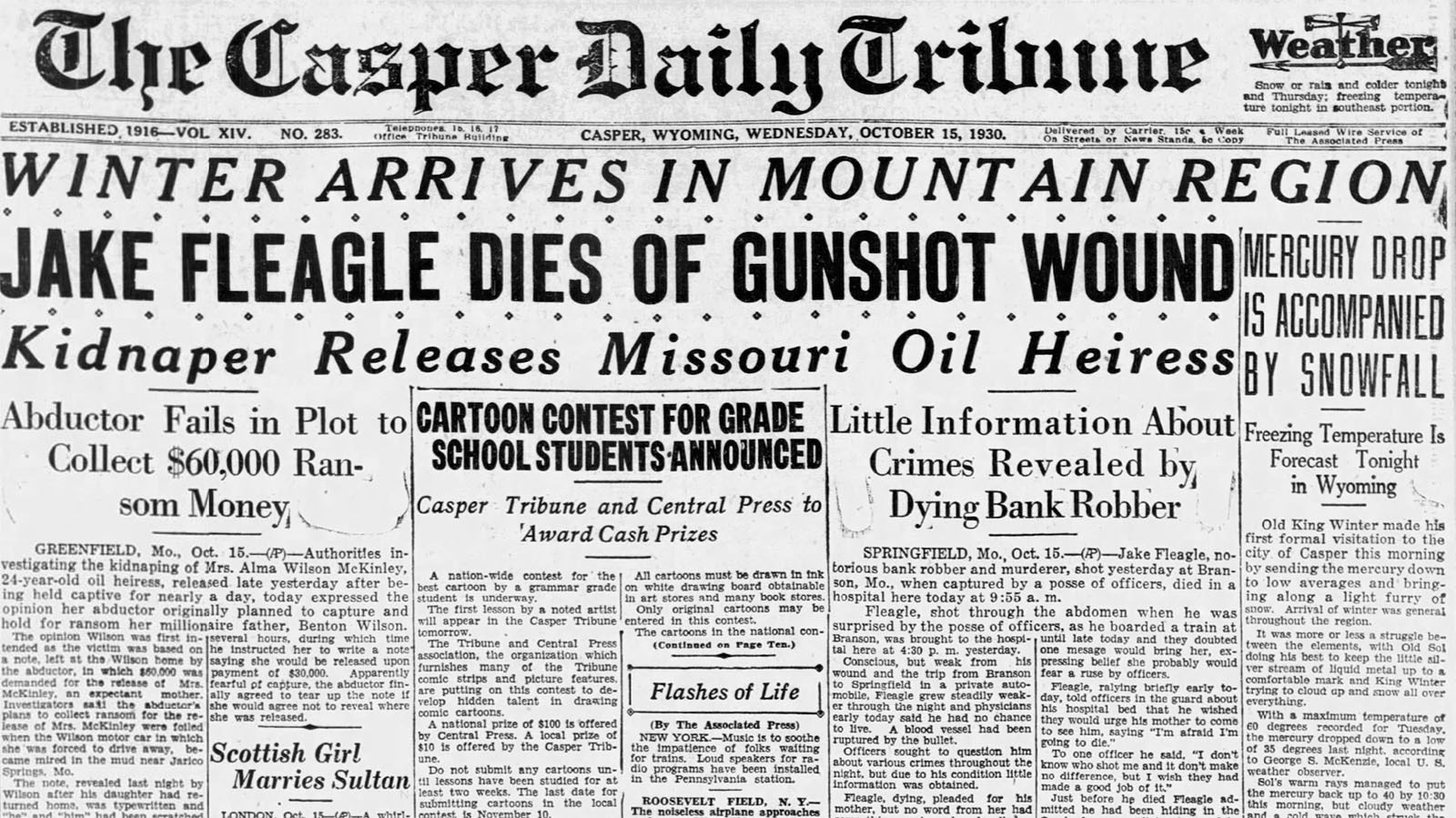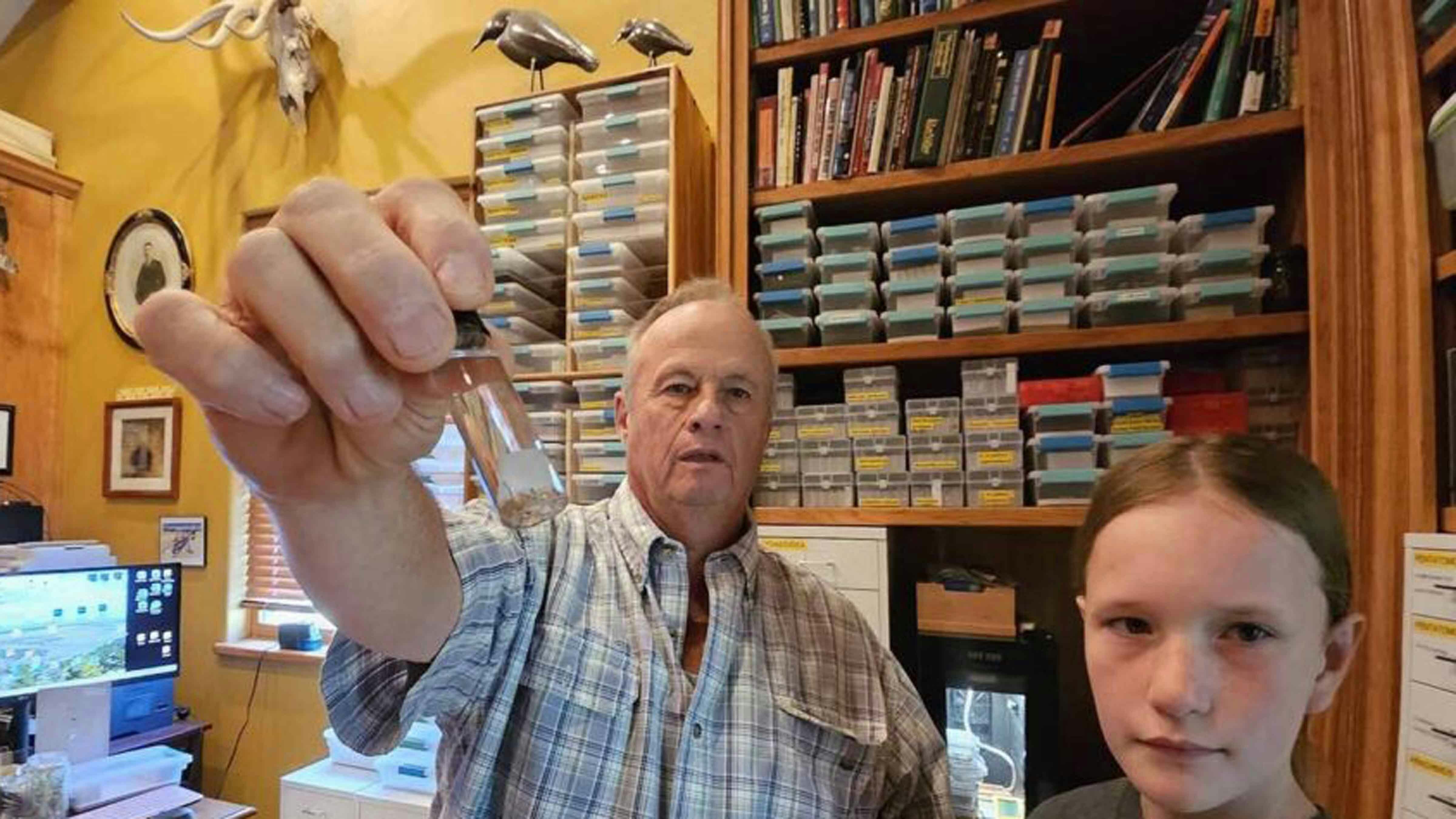A concerned resident in Casper during Prohibition got fed up with crime and corruption within law enforcement, along with the vulnerability of the local money supply created by underground graft.
So Bob David, a World War I veteran, Casper businessman, and later author of a biography on a courageous Wyoming sheriff, took matters into his own hands to do what thought needed to be done to protect his community.
If those sworn to uphold the law were going to look the other way and profit from bribery and other under-the-table rewards, he wouldn’t, David decided.
Headlines of the day almost glorified the criminal exploits of gangsters like Al Capone, Bugs Moran and Machine Gun Kelly as they stirred lawlessness in the East, along with lesser-known wannabes imitating them in the West.
“Banks in the West were being robbed daily, with activities drawing nearer and nearer to Casper,” David wrote.
His unpublished autobiography is in boxes at the Western History Center at Casper College, and it outlines how he and others in Casper organized to fight local crime.
“Finally, we woke up to the fact that banks had been ‘taken’ in almost every state which surrounded Wyoming, and as Casper banks held the largest deposits, we felt that efforts would be made here,” he wrote.
During the Prohibition era of 1920-1933 when the federal government banned the sale of alcohol, lawlessness abounded in the nation and Natrona County.
On Sept. 20, 1930, the Associated Press in a story datelined Chicago reported on, “An epidemic of bank robberies is sweeping like a September storm across the America prairies. Eighteen farm belt banks have been looted at the point of guns since September 1, sums totaling more than $130,000 taken.”
On Sept. 30, 1930, The Great Falls Tribune in Great Falls, Montana, featured the headline: “Epidemic of Bank Robberies Is Sweeping Midwest.” It also carried this sub-headline: “Vigilantes Are Being Reorganized to Stamp Out Gang Men.”

Birth Of The Vigilantes
Some local law enforcement members were known to be taking money from bootleggers, according to David.
Prior to writing about his bank concerns, David wrote about Natrona County Sheriff G.O. Housley who served from 1927-1934. David wrote that Housley was allegedly corrupt and detailed a specific conversation with a “U.S. Commissioner” friend who said Housley tried to bribe him to help set a bootlegger free.
As reported by Montana’s Great Falls Tribune, men there were forming vigilante groups, and David believed this was a good idea for Casper too.
“I began to recruit volunteers for a group which we would call ‘The Casper Vigilantes,’” he wrote. “Every man was an overseas veteran, had good judgment, and was a good shot. He must be available day or night.”
The handpicked group of 30 men included dentists, lawyers, doctors and clerks. They placed George Jarvis, a “hard-boiled old chief of police” as their leader. David wrote that the group was “deputized,” given badges and received training by the FBI at the courthouse on a weekly basis in handling firearms and subduing prisoners.
Who “deputized” the group is not mentioned by David.
They also strategized on how to protect the Casper National Bank and Wyoming National Bank locations downtown. They decided to use the rooftop of a two-story building across the street that had a brick wall extended above the roofline.
“Men could conceal themselves up there easily and could shoot behind some protection,” he wrote.
Wooden cases were built on top of businesses across the street from Casper’s banks that were staged with loaded rifles in racks and covered with canvas.
Private conversations with the “power company” led to an agreement for a secret signal that would send members of the team into their appropriate places and prepare for action.
Vigilantes who worked at gas stations on the outskirts of town would set up roadblocks. Each member of the team was given an assigned place should a bank robbery alarm be sounded.
Men in the organization did not advertise they were members, sort of the “Fight Club” of their era — the first rule of The Vigilantes was don’t talk about The Vigilantes.
David described himself as one of the few known public members of the group because he was chosen to be the spokesman.
A Conversation
As part of the group’s crime fighting effort, David wrote that he called bootlegger Dave Davidson after a gangster was murdered in the region.
Davidson told David to meet him at a “certain hall” at 8 p.m. David arrived and wrote that he was escorted into a smoke-filled room with “the mob” sitting around and Davidson “under a droplight” behind a table with two men beside him.
David wrote that Davidson “growled,” asking what the meeting was all about.
“The Casper Vigilantes wish to inform you all that we have absolutely no interest in how many of your own bunch you kill,” David allegedly told him. “But we want you to thoroughly understand that if you lay one finger on a decent man, or an innocent woman or child in this town, we will go into action.”
The bootlegger reportedly “thought a long minute and nodded.”
“Fair enough,” Davidson replied, according to David.
According to David, The Vigilantes not only warned bootleggers, but also some others in town who David wrote were involved in supplying poor Casper girls for the purpose of prostitution at local hotels.

Car Chase
On another occasion members of the group were involved in a multi-car “leapfrogging” chase out of Casper with gangsters who were part of a high-priced fur theft. The FBI made the arrests.
“We were called upon for many different acts of assistance to the FBI, sheriff’s office, and the local police,” David wrote. “Many were the arrests we made. All were reported in the paper as being performed by local police.”
David wrote he learned that “big shot” gangsters had visited Casper while The Vigilantes were in existence and upon learning the group was armed, deputized and unknown, decided to move on to another city.
“In the entire two-and-a -half years the Casper Vigilantes were in existence, not one man drew his gun or embarrassed the group with poor judgment or ill-considered remarks,” David wrote. “Few people in the city outside of the proper law enforcement officers and the underworld even knew that our organization existed.”
Dale Killingbeck can be reached at dale@cowboystatedaily.com.







